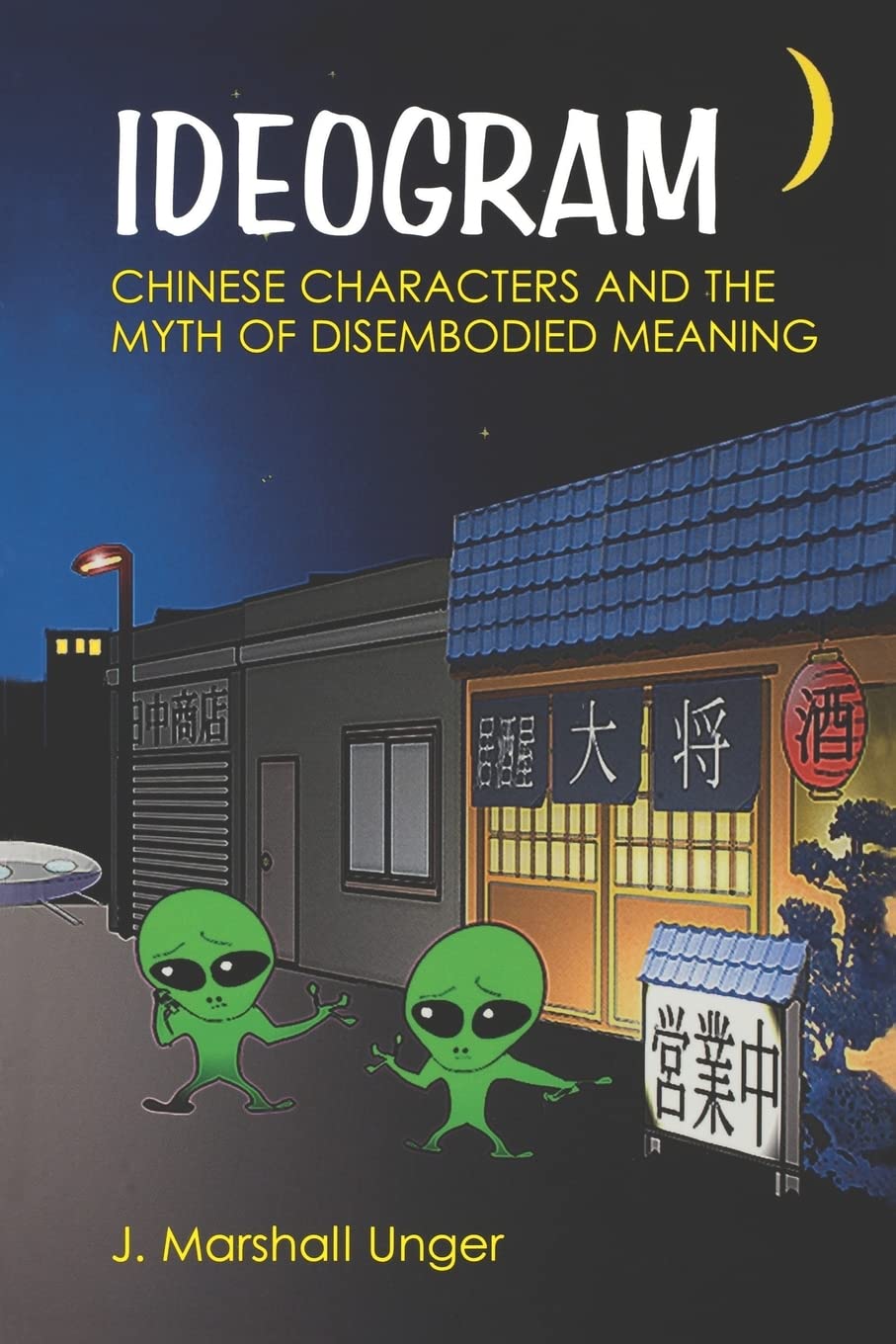I'll give an example here of how Chinese characters reflect speech more than they reflect meaning-as-such. Many more examples are possible. How you might write the conversation
"Does he know how to speak Mandarin?
"No, he doesn't."
他會說普通話嗎?
他不會。
in Modern Standard Chinese characters contrasts with how you would write
"Does he know how to speak Cantonese?
"No, he doesn't."
佢識唔識講廣東話?
佢唔識。
in the Chinese characters used to write Cantonese. As will readily appear even to readers who don't know Chinese characters, many more words than "Mandarin" and "Cantonese" differ between those sentences in Chinese characters.
[1] http://www.amazon.com/Chinese-Language-Fantasy-John-DeFranci...
[2] http://www.amazon.com/Visible-Speech-Asian-Interactions-Comp...
[3] http://www.amazon.com/Ideogram-Chinese-Characters-Disembodie...


How you might write the conversation
"Does he know how to speak Mandarin?
"No, he doesn't."
他會說普通話嗎?
他不會。
in Modern Standard Chinese characters contrasts with how you would write
"Does he know how to speak Cantonese?
"No, he doesn't."
佢識唔識講廣東話?
佢唔識。
in the Chinese characters used to write Cantonese. As will readily appear even to readers who don't know Chinese characters, many more words than "Mandarin" and "Cantonese" differ between those sentences in Chinese characters.
Chinese characters still represent SPEECH (not ideas or abstract concepts) and do so in a way that is specific to the particular Chinese (Sinitic) language that one speaks. The long story about this can be found in the books The Chinese Language: Fact and Fantasy[1] or Visible Speech: The Diverse Oneness of Writing Systems[2] by the late John DeFrancis or the book Ideogram: Chinese Characters and the Myth of Disembodied Meaning[3] by J. Marshall Unger. The book Reading in the Brain: The Science and Evolution of a Human Invention[4] by Stanislas Dehaene is a very good book about reading in general, and has a good cross-cultural perspective.
Many other examples of words, phrases, and whole sentences that are essentially unreadable to persons who have learned only Modern Standard Chinese can be found in texts produced in Chinese characters by speakers of other Sinitic languages ("Chinese dialects"). Similar considerations apply to Japanese, which is not even a language cognate with Chinese, and also links Chinese characters to particular speech morphemes (whether etymologically Japanese or Sino-Japanese) rather than with abstract concepts.
[1] http://www.amazon.com/Chinese-Language-Fantasy-John-DeFranci...
[2] http://www.amazon.com/Visible-Speech-Asian-Interactions-Comp...
[3] http://www.amazon.com/Ideogram-Chinese-Characters-Disembodie...
[4] http://readinginthebrain.pagesperso-orange.fr/intro.htm